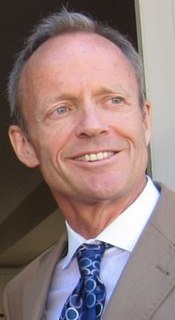A Quote by Elizabeth Cady Stanton
I have been into many of the ancient cathedrals - grand, wonderful, mysterious. But I always leave them with a feeling of indignation because of the generations of human beings who have struggled in poverty to build these altars to the unknown god.
Related Quotes
Star Trek speaks to some basic human needs: that there is a tomorrow — it's not all going to be over with a big flash and a bomb; that the human race is improving; that we have things to be proud of as humans. No, ancient astronauts did not build the pyramids — human beings built them, because they're clever and they work hard. And Star Trek is about those things.
You may well ask why I write. And yet my reasons are quite many. For it is not unusual in human beings who have witnessed the sack of a city or the falling to pieces of a people to set down what they have witnessed for the benefit of unknown heirs or of generations infinitely remote; or, if you please, just to get the sight out of their heads.
What the mysterious is I do not know. I do not call it God because God has come to mean much that I do not believe in. I find myself incapable of thinking of a deity or of any unknown supreme power in anthropomorphic terms, and the fact that many people think so is continually a source of surprise to me. Any idea of a personal God seems very odd to me.
One of the things that I tell beginning writers is this: If you describe a landscape, or a cityscape, or a seascape, always be sure to put a human figure somewhere in the scene. Why? Because readers are human beings, mostly interested in human beings. People are humanists. Most of them are humanists, that is.
And people who believe in God think God has put human beings on earth because they think human beings are the best animal, but human beings are just an animal and they will evolve into another animal, and that animal will be cleverer and it will put human beings into a zoo, like we put chimpanzees and gorillas into a zoo. Or human beings will all catch a disease and die out or they will make too much pollution and kill themselves, and then there will only be insects in the world and they will be the best animal.
Seen through the eyes of faith, religion's future is secure. As long as there are human beings, there will be religion for the sufficient reason that the self is a theomorphic creature - one whose morphe (form) is theos - God encased within it. Having been created in the imago Dei, the image God, all human beings have a God-shaped vacuum built into their hearts. Since nature abhors a vacuum, people keep trying to fill the one inside them.




































